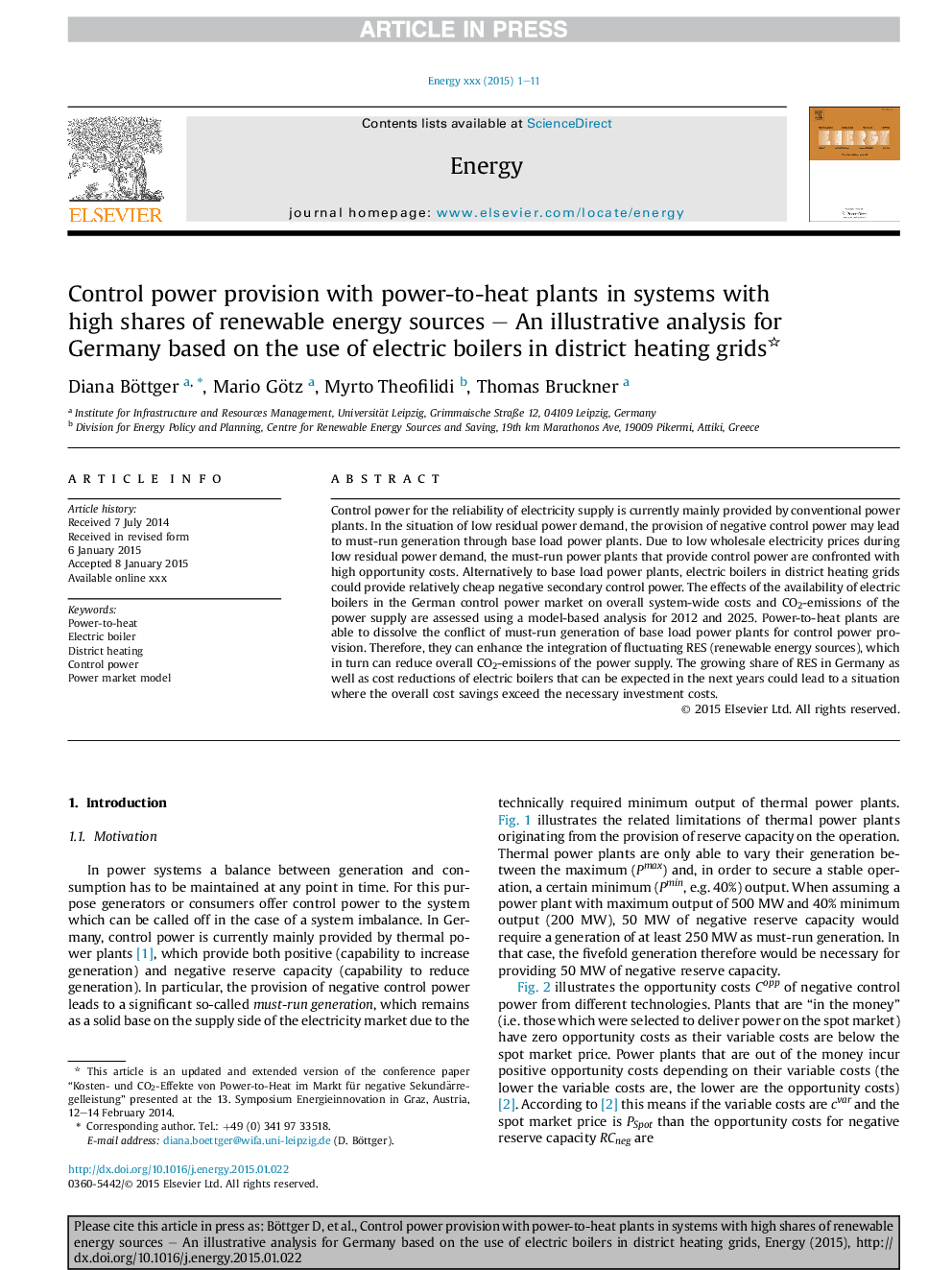| Article ID | Journal | Published Year | Pages | File Type |
|---|---|---|---|---|
| 8075168 | Energy | 2015 | 11 Pages |
Abstract
Control power for the reliability of electricity supply is currently mainly provided by conventional power plants. In the situation of low residual power demand, the provision of negative control power may lead to must-run generation through base load power plants. Due to low wholesale electricity prices during low residual power demand, the must-run power plants that provide control power are confronted with high opportunity costs. Alternatively to base load power plants, electric boilers in district heating grids could provide relatively cheap negative secondary control power. The effects of the availability of electric boilers in the German control power market on overall system-wide costs and CO2-emissions of the power supply are assessed using a model-based analysis for 2012 and 2025. Power-to-heat plants are able to dissolve the conflict of must-run generation of base load power plants for control power provision. Therefore, they can enhance the integration of fluctuating RES (renewable energy sources), which in turn can reduce overall CO2-emissions of the power supply. The growing share of RES in Germany as well as cost reductions of electric boilers that can be expected in the next years could lead to a situation where the overall cost savings exceed the necessary investment costs.
Related Topics
Physical Sciences and Engineering
Energy
Energy (General)
Authors
Diana Böttger, Mario Götz, Myrto Theofilidi, Thomas Bruckner,
